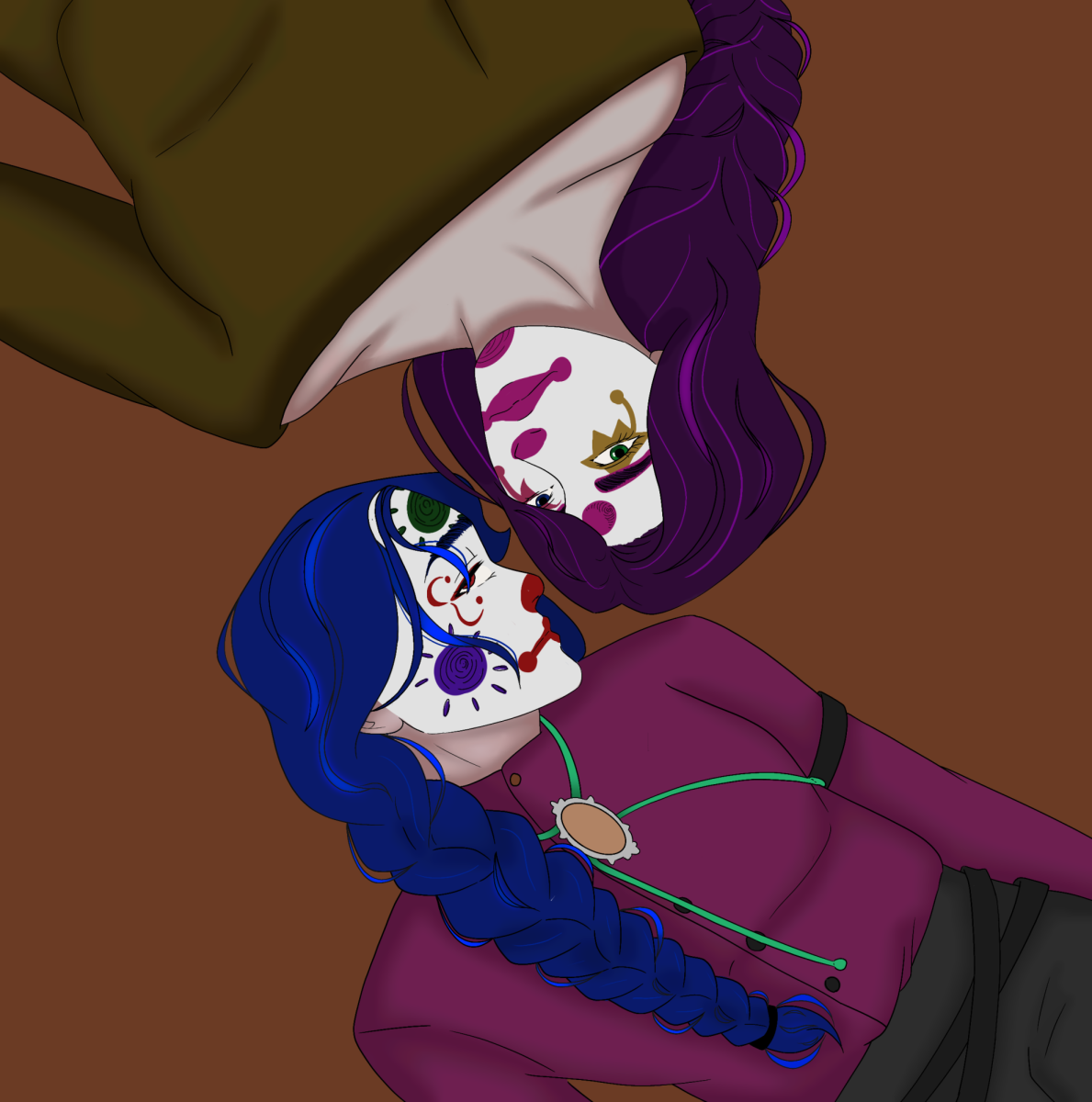
Megan Quiroz, “A Travès de lo Común”
A rapidly moving prison, whose hatred coated the plagued civilians in a thick coat of polluted air. Nearly every inch of each corner and foot was dusted in the familiar touch of greed and anger, a scent that stung when breathed in by smokey, charred lungs, and bloodshot eyes. An older man, not yet reaching the age of fifty-seven, sat cross-legged in the center of a barren cell in the prison. He had been sitting there for many minutes, all that added up to a few years, only a sliver of the rugged life sentence he had been condemned to. He sat quietly. The cell was a dark, daft void.
On the first day of his fifth year locked up, a new prisoner had arrived in the tragic, rusted cell, numbered 294, the exact cell number next to the old man’s, 295. There had been another crude criminal who had once kept the newly claimed room, one filled with pure evil, as if touched by the devil himself, and even though he had gone months ago, there was an unsettling curse struck among the cell.
“Perhaps,” the old man had thought, “company could be nice.”
On the first night, it had rained, poured down onto the prison’s roof, a subtle white noise filling the silence of the asylum.
“How long does it last?” The new prisoner asked out. He spoke not to anyone in particular, for the building was so dark and dull, that he barely knew if anyone was out past the jail bars. He was afraid if he spoke at all, his words would disappear into the dark void. Yet, he spoke anyway.
“I am not supposed to be here.” He called out, once more. His voice reeked of a silent desperation, each syllable cracking under the pressure of his broken fate. The old man almost felt bad.
“It wasn’t my fault. I promise. Please.”
The old man did not respond, for he knew if he chose to speak, his words would leak out the destiny he was given, the one he had, too, swore he didn’t deserve. Upon his own arrival, his guts had filled with the pure hatred and blackened poison that dripped through each word of his disdain and alibi. The new prisoner surely felt the same. Framed. Framed. Framed.
“I’ll get them back.” He had said.
“I’ll show them all.” He had claimed.
“I hate them all.” He had screamed into the hushed prison walls of his days, hoping against hope that the prison warden was feeling generous that night, enough to open his cell with a smile, and wave him off kindly. That, however, did not happen.
“Wait it out.” The old man finally responded, his voice echoing throughout the room. He knew that the new prisoner heard his response, if he had not already fallen asleep on the cold, murky concrete of the cell floor.
“The hate never goes away, it only dims to a lasting vendetta.”


